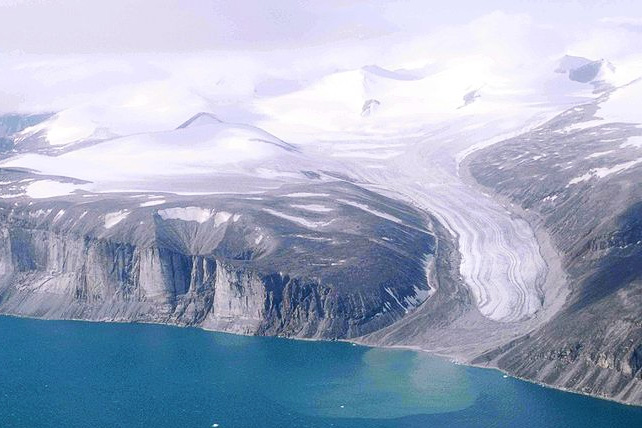The Arctic territory of Nunavut has become the latest jurisdiction to pass a law that legalises the cultivation, sale, and use of recreational cannabis.
On June 13, Nunavut – Canada’s northernmost territory, which makes up over a fifth of the country’s land mass – became the last of the country’s 13 provinces and territories to pass legislation to legalise the drug. Each of the country’s sub-national governments legislated their own territorial policy for recreational cannabis after Prime Minister Justin Trudeau announced the nationwide legalisation of the drug last year.
Legalising cannabis in Nunavut – a vast, remote, and often inhospitably-cold region – presented its own complications for lawmakers.
To begin with, where will locals buy their cannabis once the drug’s trade is legalised? In a place where winter temperatures drop as low as -40°C, there aren’t the buzzing commercial centres in Nunavut that can be found in Toronto or Montreal. According to a Nunavut government department, many residents "bring food and other hard-to-find items from southern Canada on sealift boats that visit each community in the summer".
Fortunately for Nunavut residents, online vendors will be permitted to sell and deliver cannabis to people in the territory. This is particularly important as no physical stores can legally sell cannabis in the territory until at least 2019 due to a lengthy consultation process for retail applications.

Most of Nunavut's landmass lies above the Arctic Circle
With the right technology for indoor cultivation, Nunavut residents could grow their own cannabis at home and avoid having to access commercial supply altogether, but the territory’s law is yet to define residents’ rights when it comes to personal cultivation.
Under federal law, up to four plants per home can be legally grown, but this practice has been specifically outlawed in the provinces of Quebec and Manitoba. While Nunavut authorities initially intended to prohibit the practice too, a last-minute decision by lawmakers meant the subject was omitted from legislation – allowing the government time to draft future regulations that could permit cultivation for personal use. According to a regional publication, Nunatsiaq News, legislators are considering permitting cultivation, but at a quantity below four plants per home.
Cultural differences have also played a role in the development of cannabis legislation in Nunavut; the territory has the largest proportion of indigenous Inuit peoples of any part of Canada, with over 77 per cent of residents identifying as such (compared to less than 0.3 per cent of people nationwide).
Isaac Shooyook, an Inuit elder, told the Senate Aboriginal Peoples committee in March that he feared the consequences of cannabis legalisation due to the lack of investment into social services in Nunavut.
“While our government is trying to legalise marijuana, there are no preventative measures or supports. This is very critical. There are no resources, there are no healing centres and there are no shelters for elders,” Shooyook warned. “Please be aware that in Nunavut, there is no support system for those people who will need help.”
Another, albeit less crucial, issue with cannabis legalisation that has arisen among Inuit people in Nunavut pertains to the drug's nomenclature. The Inuktitut language – which is spoken by more than two-thirds of people in Nunavut – has no traditional translation of “cannabis”, as the plant is far-from prevalent in the icy region. Several words, including “surrarnaqtuq” and “ujarak” have reportedly been proposed.
The federal legalisation of cannabis will come into effect in Nunavut, and across the country, on October 17 of this year. It will make Canada the first G-7 country to legally regulate the drug for recreational purposes.


